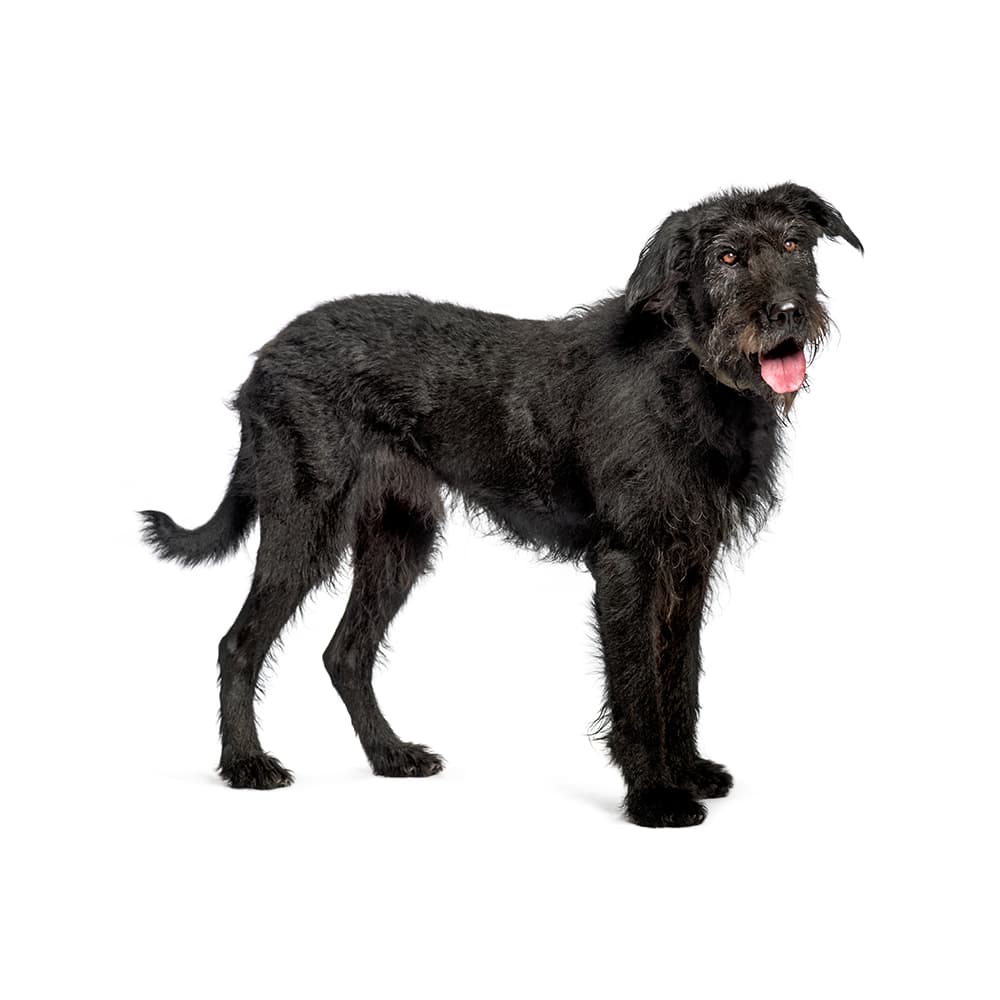Discover your dog's connection to this breed and 200+ others


Discover your dog's connection to this breed and 200+ others



The Bouvier Des Flandres, or Bouvier, is a large herding dog breed that originated in the Flanders region of Belgium. Their exact lineage isn't clear, but they're thought to have been developed from a mix of local farm dogs and imported breeds during the Medieval period. These dogs were used by farmers to herd cattle and pull carts, and they were also employed in a variety of other roles, such as police and military dogs, due to their versatility and intelligence. The breed nearly became extinct during the two World Wars due to the devastation of their home region, but dedicated breeders managed to revive them.
The Bouvier des Flandres, or Bouvier, is a generally healthy breed. They may suffer from Bouvier des Flandres myopathy, which is a disease of the muscles. If caught early, it can be stabilized with proper care. Bouviers can also be affected by a hereditary form of laryngeal paralysis. As a large dog breed, Bouviers are prone to orthopedic issues including hip and elbow dysplasia. Genetic testing for these and other conditions such as exercise-induced collapse, progressive rod-cone degeneration, and degenerative myelopathy can assist veterinarians with diagnosis and proactive care, as well as help breeders identify affected and carrier dogs.
Bouviers are known for their protective and loyal nature, making them excellent guard and family dogs. They are typically calm and sensible around the house, but they can also be reserved and watchful, especially with strangers.
They are highly intelligent, which makes them quick to learn but can also lead to stubbornness if training isn't consistent and engaging. Despite their size and strength, they're usually good with children and can be friendly towards other animals if properly socialized. They do have a strong prey drive and may not be suited to households with small animals. Bouviers require regular mental and physical stimulation to prevent boredom and destructive behaviors. They also require regular grooming due to their thick double coat.
A canine genetic lineage is a group of individuals or entire breeds that descended from common ancestors predating modern breed formation. Often these lineages are associated with a ‘type’ of dog with a unique historical working role and associated behaviors (e.g., herding, scent hunting, etc.).
Herding dogs are known for their high intelligence, trainability, and strong work ethic. These breeds originated in areas where managing livestock was an important part of daily life and had large pastoral lands. These breeds were specifically developed to help farmers and shepherds move, manage, and protect herds of livestock. Breeds within the herding dog lineage are agile and are known to have a natural herding instinct, where they like to keep their animals together. They are loyal and attentive to their handlers and are eager to please and are also highly aware of their environment. Many breeds within this linage have gone on to work as rescue and police dogs.
Example breeds with ancestry from this lineage include Border Collie, Cardigan Welsh Corgi, and German Shepherd.
According to the AKC, Bouvier des Flandres roughly translates as “cowherd of Flanders.” In the breed’s early years, it was called “vuilbaard” (“dirty beard”), “koehond” (“cow dog”), and “toucher de boeuf or pic” (“cattle driver”).
In Belgium, they cannot win the title of champion unless they also win a prize in work-competition performing tasks as a police, defense, or army dog.
Recommended by top vets with decades of experience
21 breeds
64 genetic health markers
50 genetic trait markers
